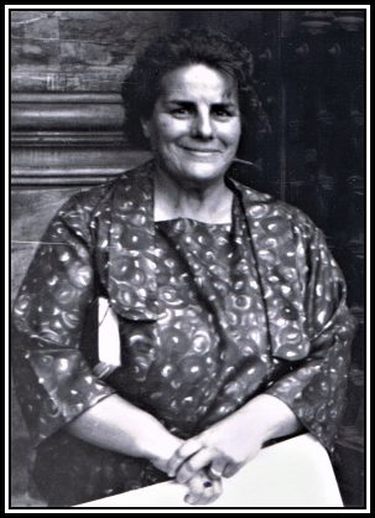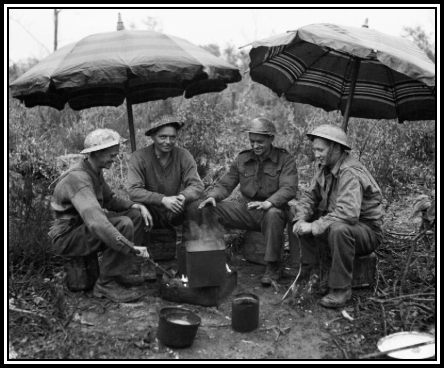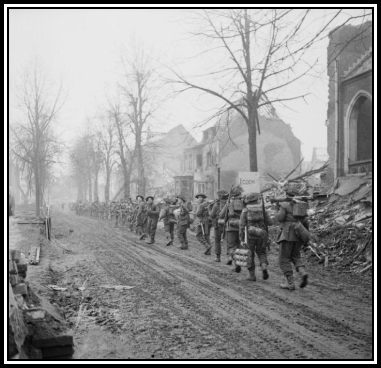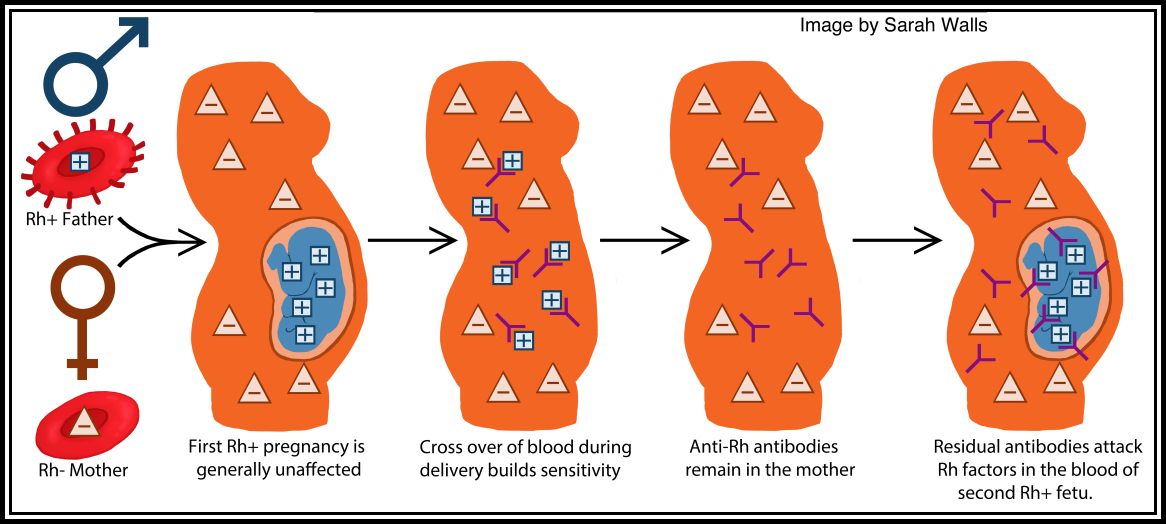TALES OF MY MOTHER
-oOo-
 My Mother – a great woman who was never given the opportunity to …….
My Mother – a great woman who was never given the opportunity to …….
-oOo-
TALE 2: SIBLINGS
-oOo-

My grandmother married an Irishman, George Smith, who immediately following the marriage never did a day’s work again! He preferred to remain in bed all day where he spent his time making a huge number of babies. His evenings were spent drinking and in violent behaviours! He obtained his money by relying on help from various Missions, such as The Salvation Army, and on my mother and her eldest brother to make money who were sent out to work from an early age!
-oOo-
I am unsure of the actual number of children that my grandmother gave birth to during her second marriage, as a number died soon after birth or else were still-born. Those that I am aware of are:
VIRGINIA, the eldest child of the second marriage and always known as Ginny. As a child she would bully her siblings, especially Georgie. My mother was charged in stopping this, but Ginny would escape by running off or else climbing up trees. As my mother was weak from the lack of nourishment, Ginny would normally get away with all kinds of unkind acts and thought herself very clever for doing this.
Aunt Ginny became pregnant at the age of sixteen and was quickly married to seemingly a decent man, George Anderson. They had four children: George (Georgie), Rose (Rosie), Terence (Terry) and Alfred (Alfie), each known by their diminutives. Her children nearest to my age were Rosie and Terry, who were to my mind, not too swift. And example of their lunacy may be found in the time when they pretended to run away from home and were missing for three days. The police were called and searches were organised and articles appeared in daily and local newspapers. However, they had not left the home, but had hidden in the attic! I never discovered a reason for this escapade.
I remember visiting Aunt Ginny and some of her children when they lived on Goldsmith’s Row, which ran along side Queen Elizabeth Hospital for Children (now tragically demolished!). I remember noting that she did not wear shoes or slippers in her house. I will give her credit since she was able to make a reasonable cup-of-tea (unlike her sister! – see later). My parents were especially fond of her earliest son, Georgie.
The house where they had a flat has long since been demolished to make way for the Hackney City Farm. Ginny and her family were moved to a house built by the London County Council (LCC) on a new estate in Debden in Essex close to Epping Forest. I remember visiting her there on occasion and being surprised to meet my grandmother for the first time since I was a baby. Apparently my mother and her mother had fallen out (see later) and had not seen each other for several years. This reunion marked a period of friendliness between them that was to last for a while.
WILLIAM, the eldest son, died at the age of two;
GEORGE, the second son and always known as Georgie. He was often tormented by his sister, Ginny, and often had to be rescued by my mother. He was my mother’s favourite sibling. My mother said that he was a very shy young man and always looked younger than his age. I am told that he took up boxing and competed in a few amateur bouts, but during his final bout, his opponent put resin on his gloves and worked it into Georgie’s eyes. Although he was awarded the victory, he decided that this was not a sport he would continue.
Once, when he was in a pub (and actually too young to be admitted), some women gave him a White Feather, the sign of a coward who, they believed, ought to be away fighting. He was apparently very upset by this and immediately joined the army (being untruthful about his age) and was assigned to the British Army Royal Artillery (Artillery) and became a Gunner. Tragically, he was killed by a sniper when walking down a street along with two Canadian soldiers on the eve of the end of The Second World War.
 A Group of Gunners Brewing Tea in the Rain at Anzio in 1944
A Group of Gunners Brewing Tea in the Rain at Anzio in 1944
Photograph taken by Sgt. Dawson, No 2 Army Film & Photographic Unit
Georgie was very considerate of his mother and also of my mother. They were devastated by the news that he had been killed. My grandmother was given the opportunity to travel to his gravesite in Kleve in Germany, on the border with The Netherlands by the War Office, but she did not go.
 Soldiers of The British Army marching through Kleve in 1944
Soldiers of The British Army marching through Kleve in 1944
When I lived in The Netherlands, I accompanied by mother and father on several occasions to visit his grave. My mother always remembered him fondly as her brother. She never thought of him, as she did his other siblings, as a half brother, and would weep copious tears on Remembrance Sunday and his birthday until she died herself.
LENARD, always known as Lenny. He was never a popular child and was disliked by his siblings. Unlike most of the men in the area where they lived, he never went to work at a manual job, but rather worked in an office. This gave his sisters the idea that he was brainy! He tried to learn French and German, I remember, but I can not be sure if he was successful. He was, without question, a snob and disliked his surname (Smith) and changed it by Deed Poll to Beaumont, much to the annoyance of his mother.
Lenny was a strange man and argued constantly with neighbours, work colleagues and his sisters (see later). It was only when I was older that I realised he was a Homosexual, a fact that my mother had apparently known since he was a child. I found him snooty. He told my mother that I would never amount to anything, much to her annoyance.
ROSE, the second daughter, always known as Rosie; she apparently was always a wild child and was married at a very young age. Seemingly, she married a man whose blood grouping was not entirely compatible with hers. All went well at the birth of their first child, but at the birth of her second child, he was noted to be blue in colour (Rhesus (Rh) Disease). This required the newborn to undergo blood replacement. As a result of this, she and her husband were advised to have no additional children, and I believe they did not.
 Rh Disease – Rh Incompatibility in Pregnancy
Rh Disease – Rh Incompatibility in Pregnancy
This Image was designed by Sarah Walls
I met her husband once and he was slightly overweight fellow of a jolly disposition! He was pleasant to be with, as he joked a lot. Naturally, I liked him as he gave me some money, and very generous he was, which was always nice when you are young. Rosie has one distinction, if I may call it that, she made the weakest tea I had ever seen! To be honest, to call her tea weak would be a complement! Her tea was almost the colour of very, very weak milk! My father would not drink it and I hated it, since she loaded it up with a huge number of spoonsfuls of sugar. I dislike sweet tea to this day, thanks to poor Auntie Rosie. It is amusing to note that the Cockney term for tea, is ROSIE LEA!
LOUISE, the third daughter, always known as Louie. She was perhaps the quietest of the children. I remember that she had very poor eyesight if the thickness of her eye glasses’ lenses were to go by. I quite liked her and remember going to her house on Burdett Road a few times. Her husband, Norman, was very short, but had a nice manner, and also had very bad eye sight. I presume that they had children, but I never met any of them.
MARGORIE, the fourth daughter, always known as Margie. She was born shortly after the death of her father and so never had any first hand knowledge of him. She was to marry a young man, Maxie, but on one occasion, they argued and were separated for a few days. They were soon reunited and planned to get married. However, these plans were soon shelved for good, since during their short separation, Maxie had taken up with another girl, who later informed him that she was pregnant. Margie was very upset and refused to speak or see him again.
-oOo-
Margie and Louie (to a much lesser extent) did not enjoy good relations with their brother, Lenny, and often argued and occasionally fought with him. At that time, they were living in our old home at 11 Royston Street in Bethnal Green once we had moved to the Pie ‘n’ Mash Shop in Cambridge Heath Road. It would seem that theirs was not a happy home.
-oOo-
None of the siblings enjoyed their mother’s cooking and refused to eat anything she made. I can understand this! Once when my grandmother came to stay with us following our move out of London, she cooked dinner for us. I could not, and would not eat it! She was the only person that I have ever met that could turn white cabbage a dark green colour once cooked, or rather boiled to death, and giving it a foul odour!
As a result, each sibling cooked their own dinner and made their own breakfasts and lunches with occasional co-operation between the sisters. Fights would begin when one accused another of stealing some of their food or else would not share usage of the gas stove etc etc etc.
I have no idea how the family solved the division of labour problem when it came to house cleaning!
-oOo-
I remember one evening when we lived at the Pie ‘n’ Mash Shop, Margie, Louie and their mother came to my parents’ shop. They were each in a terrible state, as the sisters had been fighting (verbally and physically) with Lenny and, as they claimed, had run-out-the-house in fear of their lives! Heaven only knows what the argument was about, as I was hurried off to bed and not allowed to listen – much to my annoyance. I saw that Margie was in tears, but I did hear her say that she had been hit on the leg by Lenny welding an iron poker!!! Later, she admitted to only saying this once a policeman came to the house to investigate the disturbance.
My mother offered to allow both Louie and Margie to stay the night while their mother went home. Apparently, my grandmother was very annoyed with my mother for allowing her sisters to stay as she felt they needed to come home. Amazingly my mother kindness resulted in no family member visiting or speaking to her (and me) for a number of years. Seemingly, my mother was blamed for the initial argument between the siblings …… go figure! How does the saying go? No good deed goes unpunished!
This dispute convinced me, at a young and tender age (!), that my mother’s family were not perhaps the brightest of people – I had come to the same conclusion about my father’s family long before this!
-oOo-
TEDDY, who although said to have been the brother of my mother, he was treated very differently compared to Alfie and my mother by their own mother and stepfather. My mother said that he was a cry-baby and apparently a very mischievous child who always blamed either her or Alfie for his actions when caught. Teddy constantly interfered with their chores and generally caused trouble for which Alfie and my mother received a beating. Once he climbed up on top of the wringer and then fell onto the stone ground of the back yard. This caused a deep cut on the back of his head. He was taken to hospital where the large V-shaped cut required a number of stiches. Alfie and my mother were blamed for Teddy’s action and severely beaten.
I only remember seeing Teddy once or perhaps twice. I can’t remember anything about him. I do recall that he came to the Pie ‘n’ Mash Shop once when I was very young, but he never paid me any attention and certainly did not give me any money, unlike Rosie’s husband!
-oOo-
During the school holidays and the siblings did not go to school, my mother had to take care of her siblings. My mother was given some bread and a bottle of water at about 8 a.m. and sent out of the home and told not to come back until about 6 p.m. Obviously this was a tremendous responsibility for someone as young of my mother and proved difficult since the eldest siblings often refused to follow her directions. This was mostly true of Ginny was apparently was somewhat of a bully and tormented her brother Georgie mostly. Ginny was a fast runner and always managed to stay out of my mother’s way. No one wanted to play with Lenny since he was a bad-loser and would cry at the least apparent offense. My mother said that each day, she would take them to Victoria Park where they were allowed to run around and then they went to the street markets to look for food (!) and also to the Missions for soup.
When they arrived home my mother was then expected to wash the younger children and get them ready for their dinner and then bed. My mother said that there was one bed for the kids, who slept head-to-toe!
-oOo-
This miserable existence continued until my mother was 11 years of age when she went out looking for cleaning jobs and then later she was sent into service and expected to bring home all her money and give it to her mother. This might be the one decent thing that her mother did for my mother, as she needed to be kept away from her stepfather and his drunken stupors and participation in boxing matches with her elder brother!
-oooOOOOooo-
-oooOOOOooo-
RETURN TO TALE 1
-oooOOOOooo-
-oooOOOOooo-
-oooOOOOooo-
I really enjoyed the photos of Valance Road. I Remember the large Jewish man always wearing a white apron, serving me my favourite ice lollies in the tobacconist corner shop. The pub on the other side of the road (opposite the tobacconist where my favourite Nan Louise, bought her pint of beer and would put a red hot poker in the beer. I never understood why? I am sad my brother and sister are not alive to enjoy these pages into history. Further down the street a dairy shop on the corner – owners name of Pugh.
Your own grandmother would have had a shock to learn of your qualifications and successful career you achieved. She had a nasty vicious tongue. She said what she did to deliberately hurt your mother. I Am surprised the rotten second husband had not porned the wedding and engagement rings. With each generation I think there is always a lot of poverty and strife within the East End. It will always attracts incoming immigrants.
O
-oOo-
